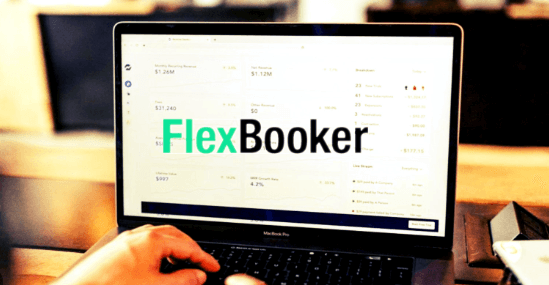
This situation could be better for everyone involved. FlexBooker, an online appointment booking service for doctors, was hacked in December. The breach is believed to have occurred between January 1 and December 15. According to FlexBooker, the attacker’s accessed email addresses, contact phone numbers, medical records, and partial credit card information on 3.7M+ accounts. The hackers could not access FlexBooker’s main application, but they managed to gain control of FlexBooker’s support system.
What is FlexBooker?
FlexBooker is a social sharing application for the travel industry. It allows users to create a unique digital marketplace around travel and leisure products and services. Users are rewarded with points for each purchase and use their earned points to redeem vouchers and other offers. For example, if a user purchases a coupon for a trip to London, they can give the voucher away as a gift to someone else or turn it into cash.
What is the Online appointment scheduling service FlexBooker?
With the help of its online appointment scheduling system FlexBooker, you can easily book appointments for yourself or your customers. The appointment scheduling tool has many features like automatic reminder emails, multiple languages support, and email or web form scheduling. With FlexBooker, you can add a note to the appointment you created or set up recurring meetings with options like every two weeks or month. FlexBooker lets you search for your clients’ works by date, time, or location, enabling you to create appointments spanning a few hours, days, or even months.
How did the breach occur?
The company suffered a major security breach, losing the personal information of nearly 1 million customers. Some data stolen included names, birthdays, phone numbers, and email addresses. The report was stored on a server located in New Jersey. While the database didn’t contain any financial information, FlexBooker says they are working to notify the victims of the breach. “The issue that caused us to have to acknowledge this was a security incident publicly was due to an employee accessing and viewing customer records in error,” said FlexBooker CEO David Cohen in a statement. “We take data security very seriously and are deeply committed to the safety and security of our customers and employees.”
How Online appointment scheduling service FlexBooker discloses a breach that saw info stolen from 3.7M+ accounts?
In an announcement by Flexbooker, the company confirmed that data from up to 3.7 million customers had been stolen from a server. While the company claims that the hackers did not gain access to full credit card numbers, they managed to steal “partial” information from customers’ cards, including credit card numbers, expiry dates, and three-digit security codes. The breach occurred on December 23 and involved the theft of partial credit card information, email addresses, and mobile phone numbers. The company has not said how many customers were affected, but FlexBooker has notified the three major credit bureaus. It will be working closely with law enforcement, and the company has taken immediate steps to prevent this from happening again.
Conclusion
In conclusion, the security breach at Flexbooker occurred because the company stored users’ data in a database accessible to the public. The company’s cloud hosting provider inadvertently made that data accessible to everyone on the internet, putting millions of users’ sensitive personal information at risk. While the company has since secured the data, knowing that a similar incident could happen to you is important. What to do now? Check out this blog post for advice on how to prevent such incidents from happening in the future.
FAQs
1. What is the impact of the breach?
The company’s investigation indicates no evidence that the information has been misused or is being sold on the black market. However, the company is continuing to monitor the situation.
2. How did FlexBooker get hacked?
FlexBooker was breached on December 23, 2016, by an unknown attacker who gained unauthorized access to the company’s database. The attacker stole information from 37M+ accounts, including partial credit card numbers and email addresses, but not passwords.
3. What happened after the breach?
FlexBooker immediately took steps to notify users and protect their data. The company also investigated how the attack occurred and has worked with leading security firms to ensure its systems are secure.





